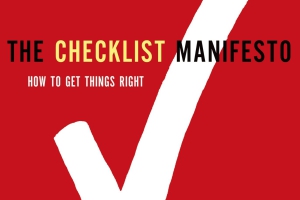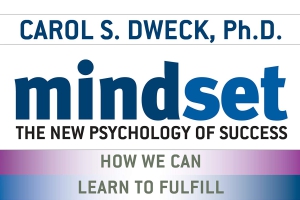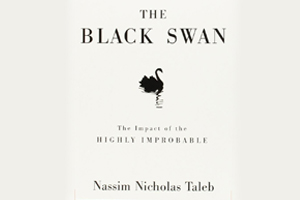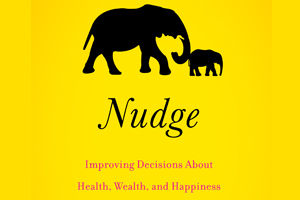Behavioural economics and the role that it has played in evaluating investor behaviour is now being widely lauded by economists and market participants. In his book, “Misbehaving: The making of behavioral economics', Richard H Thaler traces the development of behavioural economics and explains how investors can make more rational decisions by being aware of their behavioural biases. He is considered a leader in the field of behavioural economics, which examines how people make decisions and act on them. In today's time and age, when market movements can often seem to be random in nature, the study of behavioural economics can go a long way in helping investors better understand markets and make optimal investment decisions.
Key takeaways
- Traditional economic theory says that people make rational decisions, but behavioural economics shows that this is not true.
- Behavioural economists suggest that markets will reward those who make rational decisions and punish those who make irrational decisions.
- Perception of value is far more important than price. What people are willing to pay depends on their perception of what they should have to pay.
- People have an aversion to losses. The fear of loss is usually greater than the joy of gain. As a result, they tend to make irrational decisions.
- Surveys are a great way for economists to understand the factors that influence an individual's choices.
- The efficient market hypothesis should be revisited since it is based on the assumption that investors make rational decisions.
Economics is the most influential social science because it has lots of theories that can explain how people's lives work and the factors that influence their decisions. One of the basic assumptions of traditional economics is that individuals always make rational decisions. However, behavioural economics proposes that this is an incorrect assumption. Due to several internal and external factors, individuals cannot always make rational decisions. A better understanding of this can help the management of companies make better policies. It can also help investors make better investment decisions.
Behavioural economics can potentially cause and in some cases has already caused, a paradigm shift in the study of economics.
The famous philosopher Thomas Kuhn suggested that the way common people look at science is generally wrong. The general assumption is that new facts are discovered. These new facts help in building new solutions and give a better picture of how the world works. However, science works in much the opposite way. Scientists generally develop theories and then organise facts to support these theories. Traditional economics is similar in nature. However, behavioural economics is changing the way economists think about economic theory. Instead of simply focusing on theoretical models that support existing theories, behavioural economics encourages economists to study human behaviour in order to reinterpret and adjust those theories. This has had a significant impact on the understanding of economic action. It has allowed economists to better understand human behaviour, its impact on decision making, and develop better policies for people's benefit.
Traditional economic theory says that human beings make rational decisions. Behavioural economics shows that this assumption is incorrect.
According to traditional economic theory, people always make rational decisions that are in their best interest. For example, assume that a rational individual wanted to buy an instrument that she could not afford because she had to also pay for her rent, groceries, and credit card bill. Now, let's say that she was gifted the instrument by her friend. Traditional economics suggests that this woman would probably sell the instrument and then use the money raised from its sale to pay for her credit card. The assumption is that she would make the most logical economic decision. Behavioural economics, on the other hand, argues that not everyone would sell such a gift to pay down on their liabilities. It is possible that she might be emotionally attached to the gift or possibly just wants to keep the gift. Further, it is also not necessary that she would make a rational decision in the first place, i.e., not buy the instrument. There might be many people who would buy the instrument despite not actually being able to afford it. Thus, the way humans respond to a particular economic situation is often irrational and can vary.
Traditional economic theory says that even if people are irrational, the market will reward those who are rational. Behavioural economics demonstrates why this is wrong.
To be fair, economists have always known that not all of the people can be rational all of the time. However, traditional economists argue that the markets reward those people who take rational decisions. Over a period of time, when people make the right decisions, they get to a position of power and become experts who control things and influence others to make rational decisions. This ensures that the markets function properly.
However, the biggest flaw in this argument is that experts are not always rational. For example, the stock market crash on Black Monday in 1989 occurred for no reason and without any news to justify it. Experts simply stopped valuing stocks as highly as they had previously done. Traditional economics assumes that experts are rational individuals and that they always know what they are doing. Behavioural economics argues that experts can often be irrational. Sometimes it is best to attribute success to luck or to being at the right place at the right time rather than to assume that the outcome is a result of the rational choices made.
Economists should speak to people, gather responses, and then analyse these responses to better understand how people make economic choices.
Traditional economic theory assumes that people are always rational in their decision making and can easily predict their next set of actions. For example, after a snowstorm, demand for snow shovels rises sharply. Therefore, store owners should raise the price of snow shovels to the point where all the available ones are sold and no one else wants them at that price. However, the ground reality can often be completely different. A study conducted by Thaler, Daniel Kahneman and Jack L. Knetsch found that Canadians considered a price hike on snow shovels after a snowstorm unfair. The authors concluded that sellers risk consumer anger if they raise prices during times of high demand. Behavioural economists believe that people react differently to a given situation. Thus, it is important to better understand reactions in the real world. However, it is equally important to recognise that surveys can often be fairly tricky and that survey results may not always paint an accurate picture. Thus, economists should conduct multiple surveys, tweaking variables to objectively assess the responses of people in a given situation.
Most people value the money or goods that they have more than the potential money that the sale of those goods can bring. Thus, the fear of losing money/goods that you have will most likely be greater than the joy of earning money.
Traditional economic theory suggests that people always make rational decisions. Hence, they will never pass on the opportunity to make the most money from their product. The assumption is that if people have a product for which they are offered a great price then they would be more than willing to sell that product. Behavioural economics, on the other hand, argues that people will not take the best offer because they're attached to their products. This means that the product has more than monetary value which increases the worth of the product in the mind of the person holding it. Thus, they may or may not sell the product. Even if they do sell the product, it will have to be at a price which reflects its true worth to the person. Behavioural economists further argue that the pain of losing something that you own is twice as much as the joy from gaining something new. It exemplifies the old saying, 'you can't miss something that you don't have'. This is called loss aversion and is very relevant in our investment and trading decisions.
Loss aversion and poor management can cause businesses to be too risk averse.
Loss aversion generally encourages people to avoid losses rather than convince them to make gains. Thus, when businesses suffer from loss aversion, they tend to be more risk averse and consequently, do not always take advantage of profitable opportunities that might come their way. For example, if a company has the opportunity to make $5 million with a 50% chance of losing $3 million, it should take it because the upside is greater than the downside. Companies can combat risk aversion by encouraging their employees to take risks and evaluate them based on a certain time frame instead of individual projects.
It is irrational to expect people to exercise perfect self-control when making economic decisions.
Traditional economic models assume that people inherently make the choices that they want to make. However, behavioural economists argue that this is not always the case. Take the example of cookies. You might want to avoid eating them because you believe that they are contributing to your weight gain. However, despite not wanting to eat the cookies you might end up eating one or two or even ten. Clearly, individuals don't always make the choices that they want to make. Essentially, there are two parts to every individual. One is the planner who makes the decision to not eat the cookies. The other is the manager who impacts your actions and tells you to eat the cookies anyway. Sometimes the planner wins and sometimes the manager. However, the planner cannot always win.
What people are willing to pay for a product or service depends on their perception of what they should have to pay. The perceived fairness of a price can be more important than the price itself.
Often, the price of a product is not as important as the value that it is perceived to have. Which is why you might not buy a product for let's say $20, but might buy it if you received a discount of $5. The perception that something is a great deal makes it more appealing. This is why stores offer coupons, discounts, and several types of deals to attract customers. People like getting discounts, so this strategy can help businesses run better.
Reconsidering the Efficient Market Hypothesis
The efficient market hypothesis states that the price of a stock reflects its true value which is nothing but the present value of future dividends. However, in 1981, Robert Shiller's research showed that while this was generally true, actual prices were highly variable. Thus, the efficient market hypothesis is a useful guide on how markets should work, but it's not very good at predicting real market behaviour.
Inarguably, biases and emotions can play a very strong role in your ability to make optimal investment decisions. While you should certainly try and overcome these biases, you can also consider investing through investment vehicles that can help you achieve this goal. One option to consider would be to invest through mutual funds. These are investment vehicles that invest across investment asset classes like equity, debt, gold, etc. Further, they are professionally managed and the investment decisions are usually guided by specific investment mandates and rules. This helps to minimise the behavioural bias in investment decisions. Additionally, you should also consider investing in mutual funds through systematic investment plans (SIPs). SIP is an investment vehicle that will allow you to invest a certain sum of money into an investment avenue of your choice, on a periodic basis. The systematic and regular investing eliminates bias and inculcates investment discipline.
An investor education initiative
All Mutual Fund Investors have to go through a onetime KYC process. Investor should deal only with
Registered Mutual Fund (RMF). For more info on KYC, RMF and procedure to lodge/redress any complaints –please visit onhttps://www.edelweissmf.com/kyc-norms
Mutual Fund Investments are subject to market risks, read all scheme related documents carefully.
Trending Books
MUTUAL FUND INVESTMENTS ARE SUBJECT TO MARKET RISKS, READ ALL SCHEME RELATED DOCUMENTS CAREFULLY.

















